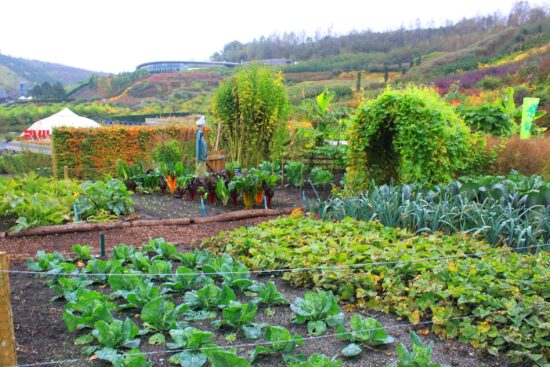
The recommended daily servings of both fruits and vegetables are five to nine servings. Fresh produce is what we should really strive for, but, given these daily serving recommendations, this can really add up the grocery bill, especially for a family household.
In fact, the National Gardening Association stated in a 2009 article that the average garden is 600 square feet in size and estimated that a garden of this size can create more than $600 in organic produce on average. This generates about a $500 return when considering the initial investment of roughly $70 to get started. If you’ve been trying to cut down your monthly expenses, it may be time to think green…on a different scale.
Here is how planting a garden can save you money:
- Spending less time and money at the grocery store. One of the keys to saving some dollar bills from your garden is by actually planting seeds of produce you typically buy at the market. Herbs can be especially expensive, so this will be an option for you to save money as well. You can keep these plants separate from your garden, but make sure to note how much light and water each will need. You may want to even consider having a separate herb garden. Can or freeze those items that have a shorter life span like tomatoes and beans. Having your own canned fruits and vegetables will be nice to have throughout the year as well.
- Vegetables that store longer = less money spent. Pick vegetables that can be stored over a long period of time to go the extra mile. Squash, potatoes and onions are all examples of great choices of veggies that have a long storage life, and therefore, help to save you a little more.
- Creating your own organic food by making your own compost. Instead of purchasing fertilizer, an added cost to your garden that can be fairly expensive, utilize food waste to provide a natural supplement to your garden. Store-bought compost can also be costly, so making it at home will keep your wallet happy. Plus, by doing so, you are helping the environment. Win-win.
- Mulch cuts down the water bill. Mulch can save your water costs due to the fact that it holds moisture in longer for your plants, thus requiring you to water them less. It also serves as a weed killer, fertilizer and bug deterrent, so if you aren’t interested in making your own compost, you may want to purchase some mulch to save other expenses in garden care. Just remember to look into what plants work best with mulch as well as the type of mulch you need.
Buyer beware, though; while a garden is a great way to keep some money in your pocket, you will want to make sure you are doing it correctly. Before you get started, be sure to research your location and space available to determine what the best route to take for your garden is; whether potted plants or small window gardens for you city dwellers, you can make your home a money-saving, food-producing resource. Even if you are only able to grow a minimal amount due to where you live, you will still save trips to the grocery store and eating your own plants.
All in all, harvesting your own crops not only reduces your grocery bill, it provides you with the reassurance that you know the exact source of your food as well. And that is truly priceless, no?
Photo: Flickr: Jennifer C.
Comments